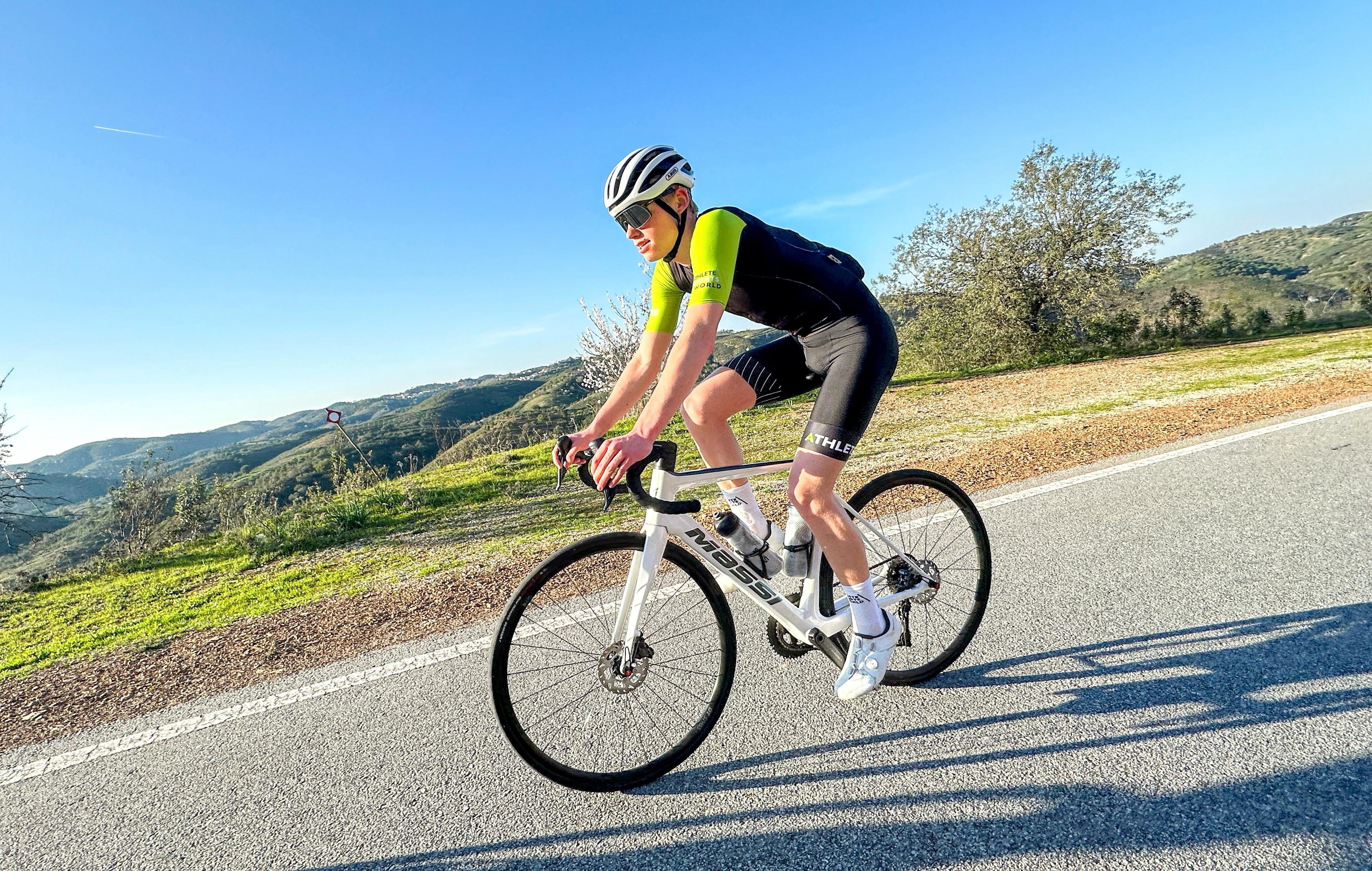We all know the saying "Men come from Mars and Women of Venus". Well, scientific evidence has never been found for that. But we now know that only a "small" difference in chromosomes can have major consequences. And those consequences go beyond the fact that women cannot pee standing ... In this blog Lotte gives five tips for women who could help with training. Tips that are fairly easy to apply and may be able to yield a lot of profit.
For a long time it has been thought that women are a smaller (and better ;-)) version of the men. Not only in sport but in many other areas you see this reflected, for example in medicine. Medication is often only tested for men and women get exactly the same dosage. In the case of physical complaints, women are referred faster to a psychologist or psychiatrist as men, when complaints do not immediately have a very clear physical cause. Also with children, boys are diagnosed with ADHD much earlier, while this is diagnosed much less quickly in girls because the symptoms are very different for girls than in boys. With that last sentence you immediately put your finger on the so -called sore spot: the symptoms in girls are different than in boys.
Where guys have an X and a Y chromosome, girls or women have 2 xx chromosomes and that second x chromosome is accompanied by a lot of other processes and hormones in the body that boys or men don't have. You could write a whole epistle about this and now there are also several books written, but I will stick to the 5 most important tips for women or as they sing in Snollebollekes so much: "Vrouwkes! †
1. Training according to your cycle
Every woman who is still menstruating has a cycle. In some cases it is not very clear because you are on the pill, but the average cycle of the woman takes between 25 and 35 days. Back to the biology lessons in high school: there are 4 phases in the menstrual cycle to be recognized. 1. The follicular phase (phase in which egg ripens), 2. The ovulation or ovulation, 3. The luteal phase (phase in which uterus prepares for a possible comes from the fertilized egg and 4. Menstruation.
Early in the follicular phase day 1 to 5 is the phase in which you can handle everything physically and you can therefore train hard. High intensity and short intervals will often not be a problem.
Day 6 to day 13 or up to your ovulation your estrogen levels rise and then you feel even stronger both physically and mentally. This is the period that you can challenge yourself and do heavy training sessions, you can go deeper during exercise.
Phase 2 The ovulation: the estrogen levels have a dip and then rise further, but the progesterone level also increases considerably, which means that you fall back more on your fat burning. In this phase you can therefore better focus on intensive endurance training and the somewhat longer but less intensive intervals. The closer you get to your period (late luteal phase) the greater the chance of injuries and that is why this phase is the ideal moment for some more peace and recovery, so opt for mild forms of movement.
Each menstrual cycle is personal and it is good to look at what your cycle is like for 2-3 months and how you feel. Then try the tips above. Give it time. If you are on the 1 phase pill (whole pill strip through the same hormones), then a more "male" training schedule with 3 weeks "up" and 1 week could fit "off", put the rest week in your stop week.
Just to be sure: if you are no longer getting your period at all or do you suffer from an irregular period (and are you not yet in transition), always go to your doctor. Training and health problems never go together, so that you want to prevent worse, also in the long term for your health.
2. Restore
Exercising actually causes damage to your body. Nothing wrong with you if you recover on time! Sleep and nutrition is a very important part of this. Women suffer more from insomnia than men. This too is probably due to the hormonal fluctuations. In the run -up to menstruation, sleep quality appears to deteriorate. Logical that you have to do less heavy training sessions during this period, because you recover less. If you do not sleep much, it has negative influence on your running performance, muscle strength, exhaustion, accuracy, sprint times, technology, strength and response times. Lack of sleep also reduces your insulin sensitivity, increases your appetite and ensures that you save more fat. So take your sleep into account. If you sleep better again after your period, then that is also the right time to improve your sporting performance.
Nutrition is another important point. Women have a small window of opportunity, to take food after their intensive training to promote recovery. To be precise, as a woman you have to ensure that you get your proteins within 30 minutes after an average to intensive training. Women are back on their normal metabolism within 90 minutes after exercise, where men take 3 to 6 pm here. Women must therefore take their recovery food faster, in particular proteins and preferably in combination with carbohydrates. Try to get 25-30 grams of proteins and preferably in the form of whey protein. Whey Protein contains leucine and this is good for women, because this promotes muscle building and recovery. If you wait to take your food after exercise, your body stays in the so -called "state of breakdown". Your body is therefore not going to recover the muscle damage of your training and of course you want to prevent that.
3. Sports nutrition
Women need carbohydrates! So skip all diets that say that you should only focus on proteins and vegetables. For female duration athletes this is not the right way to take care of your body! Carbohydrates provide essential energy to your brain and the central nervous system, they help burn fat and prevent your body from having to break down muscles to convert proteins into energy. You only have a limited option to store carbohydrates in the form of glycogen. When you are through your stock you have to supplement. Carbohydrate diets increase vetoxidation during exercise and thereby encourage fat storage in the muscles. Women who eat very carbohydrate and high-fat rich increase the cortisol values that cause breakdown and less good recovery. Your body is then "eating" muscles instead of building. Eating carbohydrates is associated with a better recovery during training period and the fact that you can handle your training sessions better. So slide that plate of pasta inside!
Sports nutrition for women. Due to hormonal fluctuations, women are more susceptible to gastrointestinal problems during exercise. We are even 5x more chance. There are certain ingredients in sports nutrition that we can better avoid "Vrouwkes", including Sorbitol and Mannitol. Sorbitol and Mannitol are natural laxative agents. If that is too much in your gel or sports nutrition, I don't have to explain to you how you respond to it during your effort. Sports nutrition that consists only of fructose and maltodextrin if you want to avoid this because fructose and maltodextrin are absorbed less efficiently and quickly. They extract moisture from the body or can cause bloating, gas formation, diarrhea and other stomach and intestinal complaints. Dried fruit works fine again because it is packed in fibers and less fructose comes into the gut at once. Fructose can also ensure that a sporting body is less able to withstand heat. You only want to avoid sports nutrition on maltodextrin and fructose, otherwise you have the chance that you will end in a toilet. Glucose is a great fuel for women, is absorbed in the bloodstream directly from the intestine, this less chance of a dixie stop. Combinations of different types of sugars work best and are best used by the body.
Do you use sports gels? Drink enough when taking a gel. Most sports gels extract moisture from your body. If you drink too little, the gel stays in your stomach because of the too high concentration of carbohydrates, after which your stomach extracts extra moisture from your body you ultimately dry out yourself. With every gel you take, you must drink 200-300 ml of water depending on the amount of carbohydrates. Even if it says on the package that the gel is based on water.
4. Never train soberly.
As a woman you can never train soberly! It gives your body unnecessarily much stress and is busy restoring this all day. Do yourself and your body a favor and eat something before you start training. Never go on the bike, or run or swim without giving your body fuel. For women, the cortisol levels are going to rise enormously and you don't want that, this is extra stress. If you do this too often, you will be in a chronic stress situation. So slide that banana and sandwiches with peanut butter in front of you before you get out of the door.
5. Strength training.
Strength training is even more important for women than for men. Even if you are a endurance sport athlete and do long distances. Women lose muscle mass from halfway through the age of 30. So get started with weights, this ensures that you are stronger and ultimately faster. Take not only the 1 and 2 kilos of weights, but if you are a bit practiced, then also take the heavier weights and challenge yourself! The combination of strength training and plyometric exercises (Jump Squats, Burpees, Jump Lunges, jumping rope etc.) is the best combinations for our Vrouwkes!
These were the 5 tips. If you want to know more about your cycle, nutrition and recovery, read the books Roar from Stacy T. Sims, PhD. Do you prefer a Dutch book? The book Menstruating and Performing by Maartje van Gestel, she explains it all very well and understandably. Because in the end we women are also speed devils and we want to get the best out of ourselves. We will not succeed that standing peeing, but we can also train! Make your own training schedule, take your body into account and then you will soon defeat everything and everyone. Good luck with training and racing!







